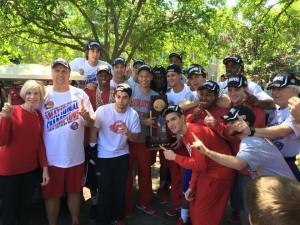What if I began this article with a headline that read “Russia is thinking of dropping a bomb on the United States”? Would you have been more or less likely to read this article?
I’m guessing you would be more likely to read this and read it thoroughly. After all, I’m sure you’re a very astute and “sensational” individual who enjoys reading and enlightenment.
For a long time, the word “sensational” served to uplift a person’s spirit through a complimentary fashion. But these days, if you’re labeled as a “sensationalist,” your credibility is always in question.
In a 2001 article written in the Journal of Broadcasting & Electronic Media, three individuals (Maria Elizabeth Grabe, Shuhua Zhou, and Brooke Barnett) documented the change over time of the word “sensational.”
The researchers also noted how the term of sensationalism could be traced all the way back in the 1500s and how the term is now something that aims to produce “a startling or thrilling impression or to excite and please vulgar tastes,” according to The Random House Dictionary.
So why do news organizations often feel the need to complete their news coverage in such a way. Why would a news outlet willingly want to “excite and please vulgar tastes”?
Two reasons. Money and competition.
With the news always being on a 24-hour cycle, everyone is looking for the latest stories. Yes, it is understandable that a reporter would want to do the job they were assigned to do.
There are also many news “organizations” like TMZ that are always putting out stories that may or may not be true just so they can be seen as the main place to get news.
And if they are the main place to get news, they get more money. Unfortunately, to get this money, the “reporters” often use sensationalized headlines to sell their story instead of just writing an in-depth story that is only factual with no ulterior motive. But there is hope.
Associate Professor of Communication Michael Trice said that journalists wouldn’t continue to use sensationalism if the public demanded better news and more thorough reporting. He also viewed the New York Times as a potential beacon of light since it was the New York Times that broke through during the time when two other newspapers were “competing” with each other.
“They [New York Times] carved out a niche,” Trice said. “They called it ‘All the news that’s fit to print.’ The idea being we’re not going to print this crap that you find in the Hearst paper or the Pulitzer paper, we’re going to print real news.”
Real news.
Is it really possible? Maybe. But reporters are going to have to step up their reporting skills and actually tell the news.
“One of the main dangers in media today is that journalists use a pack mentality, where one journalist reports this and everybody jumps on that because they don’t want to be the one who is not saying that,” Trice said. “You get reporters reporting what other reporters are saying instead of reporters reporting what their sources are telling them.”
If reporters aren’t reporting what their sources are telling them, then anybody can be a reporter. And that’s bad.
Leah Schwarting, Senior Editor of the Southern newspaper, keeps sensationalism out of the Southern newspaper by speaking to the writer of the story and ensuring that quotes are accurate. Schwarting also said that reporters can use several interviewing tactics to make sure that quotes don’t get sensationalized.
“If something sounds a little unusual to me, I usually ask a follow-up question,” Schwarting said. “Most journalists want to do a good job and are honestly looking for facts, so don’t just brush them aside when they’re trying to fact-check.”
Even if there are still many occurrences of sensationalism, that doesn’t mean the media isn’t trying.
According to a 2011 study written in the Journal of Media Psychology, there has been a decline in sensationalism usage in the New York Times and the Washington Post.
But let’s be honest.
Sensationalism in the media will always be a highly debated topic. As long as the American public continues to watch shows like “ESPN First Take”− a show that has two people who many see as the preeminent sports sensationalists− sensationalism will always exist.
So how can we solve this problem of sensationalism? Should we stop paying attention to the news? No of course not.
According to a study conducted by the American Society of Newspaper Editors, 80 percent of the American public believes that sensational stories receive a lot of news coverage simply because the stories are exciting, not because they are actually newsworthy.
Each of us can personally make the decision to not watch programs or read articles that might possibly have sensationalist elements in them. We can apply a level of critical thinking to whatever news we are ingesting.
You’re not stupid. I’m not stupid. As a part of the American public, we’re not stupid.
So it’s time to do our part.










































You must be logged in to post a comment.